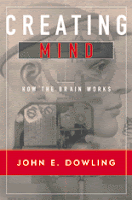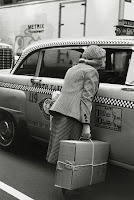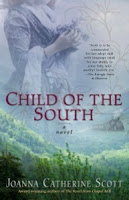
In his book, Creating Mind, John Dowling quotes Lewis Thomas (from The Lives of A Cell: Notes from a Biology Watcher ) writing about the Marine Biological Laboratory (MBL) in Woods Hole, Massachusetts: "The MBL in Woods Hole is a paradigm, a human institution possessed of a life of its own, self-regenerating, touched all around by human meddle but constantly improved, embellished by it....Successive generations of people in bunches, never seeming very well organized, have been building the MBL since it was chartered in 1888."
I like Thomas's description of this human institution possessing a life of its own - self-regenerating, touched....by it... Academic types drifting down, looked around, began explaining things to each other, and the place was off and running...
Many models and studies of life forms at MBL have led to breakthroughs in our understanding of the function of life at different levels, and therefore our appreciation of life at many levels. What we've learned about the nervous system from sea creatures has been invaluable. We've built upon it - though most of us are not aware of how this knowledge has helped us.
This has gotten me thinking about knowledge, the role of knowledge for us as humans, and what prompts us to seek and expand our knowledge as a thinking mind. I know that our greatest motivator is change, our internal need and design as energy. It is not only what I know, or think I know, but my attitude about this phenomenon that is so important. Not so much what I do, bu the energy with which I act. Confidence comes in loving what I know (Know Thyself!), trusting absolutely this love.
JUST THINK. I grew tired of not thinking! Or of rote thinking! This morning on the news I listened to a story about the man just awarded National Teacher of the Year acknowledgement. He was a narcotics police officer in New York for many years before becoming a Special Education teacher. When asked why he became a teacher, he said one thing great about being a policeman was the public service. Yet this focus was reactive, and being a teacher was proactive. Much of the population he served had already made mistakes that he felt could be corrected if people were helped, educated differently earlier. It was a wonderful story, and I applaud such compassion and service to our humanity.
When I read a friend's message telling me of the way honey from the honeycomb tastes, and the way the bees cooperate to create, I too imagine honey in different colors glistening in the sunlight. (She explained how the pollen comes in all different colors, depending on the chemical makeup of the plant they are harvesting at the time.) With another prompt, I listened again to David Bowie's Sound and Vision, taking it all in, and I heard "electric blue" all new - no waiting for sound and vision when I simply let love live in me, remember the rhythm of thoughts that feel and sound of harmony to me. My cells remember, and are happy for it.
Poetry makes itself known always, as we are open to expressing and sensing energy changing. Perhaps dancing. Knowledge of ourselves - the discipline, structure, order of our internal design as energy - lets us love!
Time with my mother teaches me, too, the simple way love is. She is one of my creators, after all. When her blue eyes turn to a milky grey, and her pointing finger shakes, I still see the smile inside, and the way she wants to go on. With others, I hear the hope, acceptance, the compassion, and I feel the love we all share shining through our sometimes clumsy ways.
I like Thomas's description of this human institution possessing a life of its own - self-regenerating, touched....by it... Academic types drifting down, looked around, began explaining things to each other, and the place was off and running...
Many models and studies of life forms at MBL have led to breakthroughs in our understanding of the function of life at different levels, and therefore our appreciation of life at many levels. What we've learned about the nervous system from sea creatures has been invaluable. We've built upon it - though most of us are not aware of how this knowledge has helped us.
This has gotten me thinking about knowledge, the role of knowledge for us as humans, and what prompts us to seek and expand our knowledge as a thinking mind. I know that our greatest motivator is change, our internal need and design as energy. It is not only what I know, or think I know, but my attitude about this phenomenon that is so important. Not so much what I do, bu the energy with which I act. Confidence comes in loving what I know (Know Thyself!), trusting absolutely this love.
JUST THINK. I grew tired of not thinking! Or of rote thinking! This morning on the news I listened to a story about the man just awarded National Teacher of the Year acknowledgement. He was a narcotics police officer in New York for many years before becoming a Special Education teacher. When asked why he became a teacher, he said one thing great about being a policeman was the public service. Yet this focus was reactive, and being a teacher was proactive. Much of the population he served had already made mistakes that he felt could be corrected if people were helped, educated differently earlier. It was a wonderful story, and I applaud such compassion and service to our humanity.
When I read a friend's message telling me of the way honey from the honeycomb tastes, and the way the bees cooperate to create, I too imagine honey in different colors glistening in the sunlight. (She explained how the pollen comes in all different colors, depending on the chemical makeup of the plant they are harvesting at the time.) With another prompt, I listened again to David Bowie's Sound and Vision, taking it all in, and I heard "electric blue" all new - no waiting for sound and vision when I simply let love live in me, remember the rhythm of thoughts that feel and sound of harmony to me. My cells remember, and are happy for it.
Poetry makes itself known always, as we are open to expressing and sensing energy changing. Perhaps dancing. Knowledge of ourselves - the discipline, structure, order of our internal design as energy - lets us love!
Time with my mother teaches me, too, the simple way love is. She is one of my creators, after all. When her blue eyes turn to a milky grey, and her pointing finger shakes, I still see the smile inside, and the way she wants to go on. With others, I hear the hope, acceptance, the compassion, and I feel the love we all share shining through our sometimes clumsy ways.
We laugh and let ourselves feel the love that lights our way, as we make our own ways. Kathy Oddenino wrote, "As we allow our loving emotions to live through the energy fields of our Ethical Values, we raise ourselves into a higher level of thinking than we have ever lived before."
When we know we have to "save ourselves," we will seek knowledge to help ourselves. Love is our protection! We're not excited about what we don't know. Within ourselves we find our lessons and our strength.
When we know we have to "save ourselves," we will seek knowledge to help ourselves. Love is our protection! We're not excited about what we don't know. Within ourselves we find our lessons and our strength.
.jpg)

